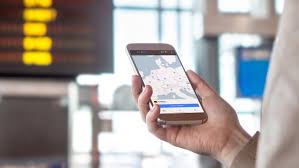In this digital age, where we are constantly connected, traveling without a secure internet connection is like leaving your front door wide open. Hackers and cybercriminals are lurking on public Wi-Fi networks, ready to exploit any vulnerabilities in your online presence. This is where Virtual Private Networks (VPNs) come to the rescue. VPNs have become an essential tool for travelers, providing a shield of protection against potential threats and ensuring your online activities remain secure, whether you are sipping coffee at a local café or waiting for your flight at an airport.
Traveling with VPN Ensuring Secure Browsing
Gone are the days when VPNs were only used by tech-savvy individuals or businesses. With the increasing number of cybercrimes and the rise of digital surveillance, VPNs have gained popularity among travelers as a vital tool for ensuring secure online activities. Whether you are on a business trip or leisurely exploring a foreign land, connecting to public Wi-Fi networks can expose your personal information to hackers. However, by using a VPN, your internet traffic is encrypted, making it virtually impossible for anyone to intercept or steal your data. VPNs create a secure tunnel between your device and the internet, ensuring your privacy and protecting your sensitive information.
Moreover, VPNs allow you to bypass restrictions imposed by governments or internet service providers (ISPs) in certain countries. This is particularly important for travelers visiting countries with strict internet censorship or geo-restricted content. By connecting to a VPN server in another location, you can effectively bypass these restrictions and access the internet as if you were in a different country. This not only guarantees your freedom to access any website or service but also prevents your online activities from being monitored or controlled by authorities.
Threats of Public Wi-Fi Networks
When you connect to a public Wi-Fi network, you are essentially exposing yourself to potential attacks from hackers who may be lurking on the same network. These hackers can easily intercept your internet traffic and gain access to your personal information, such as passwords, credit card details, or even private messages. However, using a VPN ensures that your online activities remain encrypted and secure. VPNs create a secure tunnel between your device and the VPN server, making it extremely difficult for anyone to intercept your data.
Additionally, VPNs provide an added layer of protection against other types of online threats, such as malware or phishing attempts. Some VPNs offer built-in features that block malicious websites or warn you about potential threats, keeping you safe from falling victim to online scams. This is particularly important for travelers who may be using unfamiliar networks or accessing websites that are not secure. With a VPN, you can browse the internet with peace of mind, knowing that your online activities are protected from any potential threats.
In a world where our lives are increasingly intertwined with the digital realm, the need for secure internet connections while traveling is more crucial than ever. VPNs have emerged as a powerful solution to protect our online activities and ensure our personal information remains safe from prying eyes. Whether you are a frequent traveler or just embarking on your first adventure, investing in a reliable VPN is a wise decision. It not only safeguards your online presence but also grants you the freedom to explore the internet without limitations. So, before you set off on your next journey, make sure to equip yourself with a VPN to enjoy safe travels and worry-free browsing.

